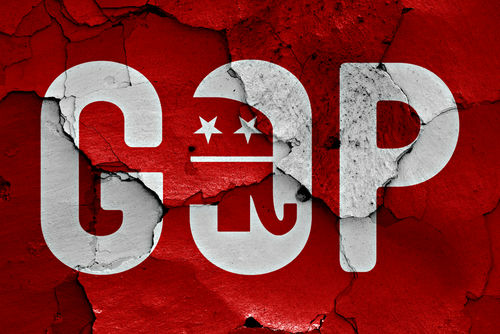House Republicans are reigniting a long-standing battle, seeking to repeal the federal charter of the National Education Association (NEA), arguing that it’s time to sever ties with a union they claim is too intertwined with partisan politics.
A Push for Charter Repeal
House Republicans have reintroduced legislation aiming to revoke the NEA’s federal charter, a move that has become a recurring theme in recent congressional sessions. Led by Rep. Bob Good of Virginia, the bill—titled the “National Education Association Charter Repeal Act”—has been sent to the Judiciary Committee for review. This latest attempt underscores the GOP’s determination to diminish what they perceive as the undue political influence of the NEA, which has historically aligned with Democratic policies.
The NEA, founded in 1857 and granted a federal charter in 1906, was originally intended to elevate teaching standards across the nation. However, critics argue that it has since evolved into a powerful labor union that prioritizes political activism over its educational mission. This transformation has particularly irked conservative lawmakers who see the NEA as an obstacle to school choice initiatives and a champion of liberal agendas.
Political Tensions on Education
The NEA’s federal charter, codified in Title 36 of the U.S. Code, is a rarity, usually reserved for organizations like the Boy Scouts and Veterans of Foreign Wars. Republican lawmakers argue that the NEA no longer merits this distinction, citing its shift from a neutral education advocate to a politically partisan entity. Meanwhile, NEA President Becky Pringle has condemned the repeal effort, framing it as an attack on educators’ voices and a strategic move to weaken public education in favor of school choice.
NEA President Becky Pringle leads delegates in a weird chant of “Diversity, Equity and Inclusion” at the union’s Annual Meeting and Representative Assembly last week in Portland, Oregon. pic.twitter.com/VR8yrUMGUV
— Defense of Freedom Institute (@DFIPolicy) July 9, 2025
With a GOP-controlled Congress, the bill’s chances of advancing are notably higher than in previous sessions. Yet, its passage remains uncertain without broader legislative support. The political climate is ripe for contentious debates, as this initiative taps into deeper partisan divides over the federal role in education and the influence of teachers’ unions.
Implications of Repeal
If successful, repealing the NEA’s charter would symbolize a significant shift in the balance of power in education policy. While the charter itself is largely symbolic, revoking it would undermine the NEA’s prestige and could embolden further efforts to curtail union power within the education sector. This move is part of a broader conservative push to promote school choice and reduce the federal footprint in education, aligning with initiatives like the Heritage Foundation’s Project 2025.
‘You Can Lead Now’: Inside the NEA’s Plan to Engage New Teachers https://t.co/2GQoIbVGU3 pic.twitter.com/z0yLZxYJ2J
— Education Week (@educationweek) July 10, 2025
For public school systems and educators, the repeal poses a potential threat to union advocacy and protections, possibly impacting funding and policy debates. Conversely, school choice advocates may see it as a victory, reducing union opposition to charter schools and vouchers. This legislative effort, whether successful or not, keeps the spotlight on education reform and could influence state-level actions across the country.
Sources:
Click this link for the original source of this article.
Author: Editorial Team
This content is courtesy of, and owned and copyrighted by, https://www.rightwinginsider.com and its author. This content is made available by use of the public RSS feed offered by the host site and is used for educational purposes only. If you are the author or represent the host site and would like this content removed now and in the future, please contact USSANews.com using the email address in the Contact page found in the website menu.








